
Fears of contamination
No matter how good they might taste, there are some foods that safety experts just won’t consider eating. They’re too ripe for contamination, leaving them at risk for bacteria like E. coli, Salmonella, or Listeria. You might want to think twice before putting any of these items on your menu.
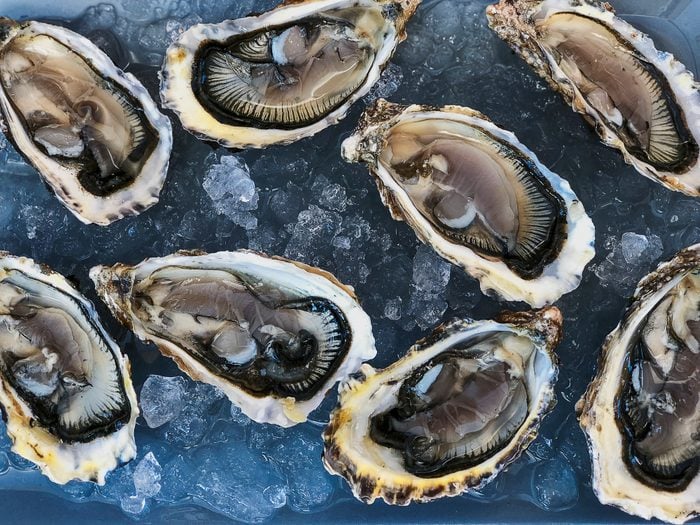
Raw oysters
They may be delicious—and then there’s the oyster’s reputation as one of the top libido-boosting foods. But food safety expert Jeff Nelken won’t indulge. “At certain times of the year, oysters become contaminated, and they become more of a risk,” says Nelken, a certified trainer and provider with the Los Angeles Health Department. “Eating the same oyster that’s been cooked to 145 degrees, so you’re killing any bacteria, is safer. Or make sure that they’re coming from areas without any issues.” Make sure you don’t fall for these myths about food poisoning.
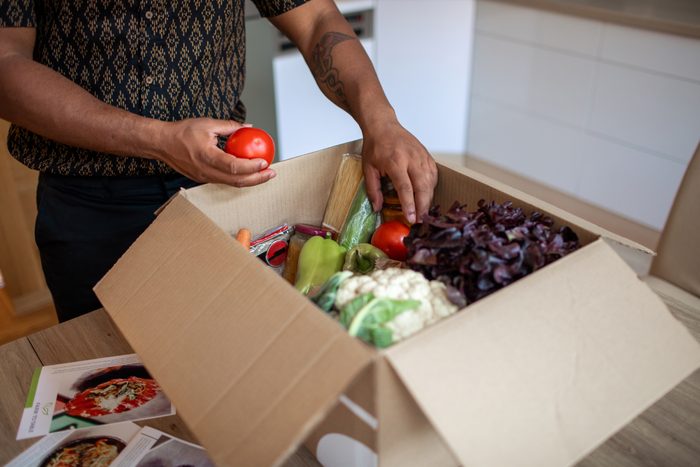
Meal kits
Those ship-to-you meal kits may be the ultimate in convenience and they offer some incredibly delicious options. However, Nelken wants to take a pass, unconvinced about the safety of having your food delivered that way. “People need to do a little bit of thinking before they use all these services,” he says. “People need to find out how they verify that it’s being kept at safe temperatures.”
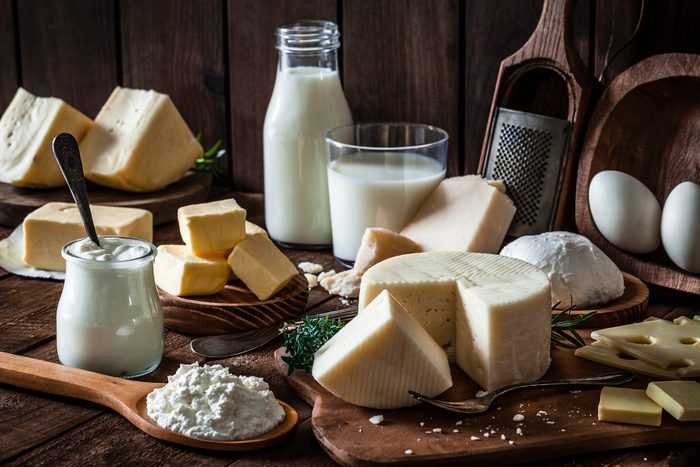
Raw milk or raw milk cheese
Unpasteurized milk products—including cheese—have become more popular, even though many food safety regulations prohibit it in the U.S. Unpasteurized products can be infected with Listeria, E. coli, or Salmonella—which is one reason why food safety expert Barry Parsons of Robson Forensics doesn’t partake in it. “I would not go for any raw milk products, because there’s no kill step. I don’t want to take that chance,” he says. “There are places that are safe, that do it very well—but you need to know the history of the operation.” Follow these rules to avoid nasty food poisoning during the summer.
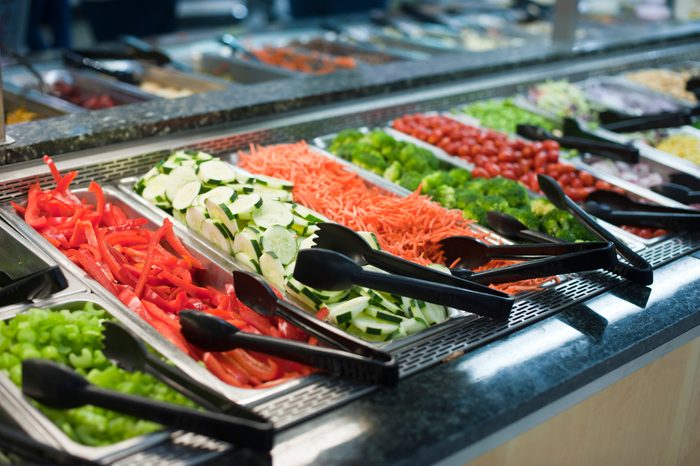
Salad bars
That innocent-seeming salad bar can harbor scary stuff. Ingredients are left out in the open, indefinitely, and potentially at the wrong temperature, are ripe for contamination. “If I know that there’s an attendant, and they’re on top of it, then I don’t mind eating from it,” Parsons says. “You need to look at other things than just the food itself—what they’re physically doing, and their actions and behaviors.”
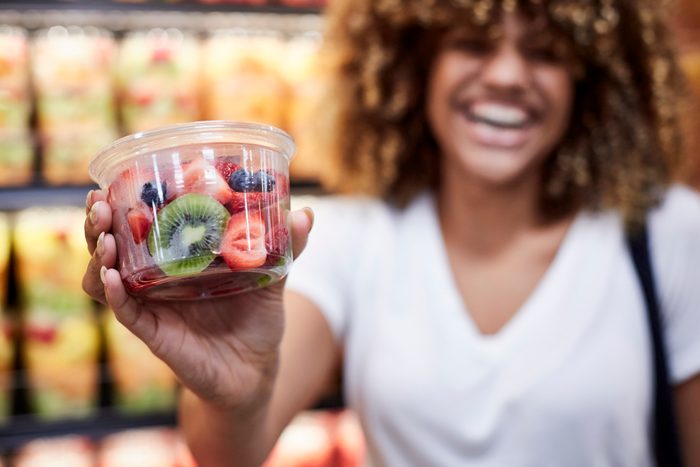
Precut fruit
Those pretty mixed fruit salads at the grocery store could be contaminated if the preparation isn’t done properly. “I would ask a lot of questions about how they do that—what sink do they use, how do they cut up everything, are they washing it down, are they sanitizing it,” Nelken says. “In produce, everything has to be washed and sanitized. For instance, the netting on the outer skin of melons holds on to bacteria really well, and the fruit is laying on the soil.” Here’s the difference between food poisoning and the stomach bug.
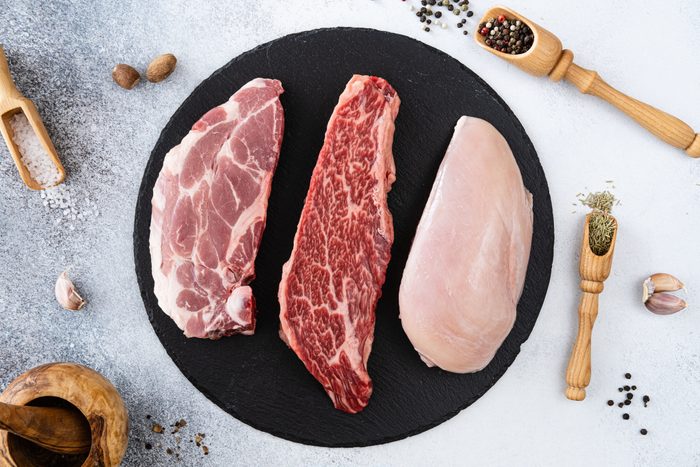
Undercooked meat or eggs
Chicken and pork are especially dangerous if served at a lower temperature. Chicken is often contaminated with Salmonella, while pork can be contaminated with a parasitic roundworm that causes a disease called trichinosis—it can lead to diarrhea and vomiting; if the worms reproduce, they can burrow into muscle tissue and cause fevers, weakness, and even meningitis or pneumonia. But other undercooked meat and eggs can also put you at risk—especially if your immune system is compromised. “What I recommend are that the young or the elderly or those with a weakened immune system—such as those with diabetes or cancer—don’t consume anything raw or undercooked,” Parsons says. “They’re more sensitive—and if they eat the same food, you may be OK, but they may become ill.”
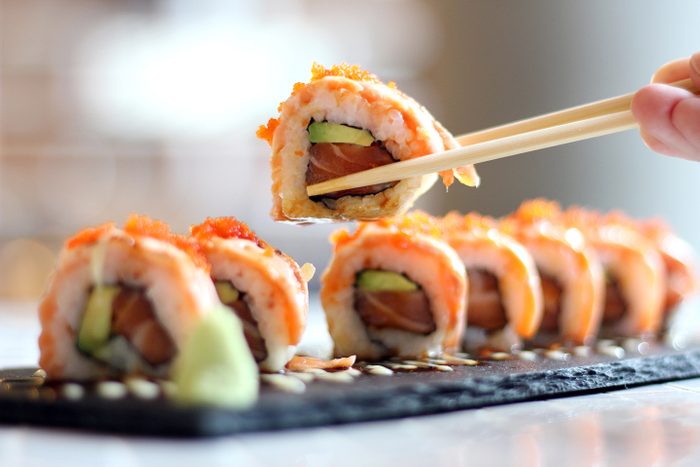
Sushi
Sushi is usually relatively safe, but you need to trust the source of the food. When fish is improperly handled, it can be easily contaminated by common food poisoning bacteria—or, with certain fish, scombroid food poisoning. “If the fish is laid on top of the boat and improperly handled, it starts to decompose and can produce a histamine,” Nelken says. “People can have a sensitivity or an allergic reaction.”
Parsons will indulge in sushi “if I know that it’s a sushi-grade product, and know that it’s been treated and frozen properly,” he says. “But that’s not a 100 percent guarantee. There is no 100 percent guarantee.” Next, read about the foods that nutritionists never order when they eat out at restaurants.

